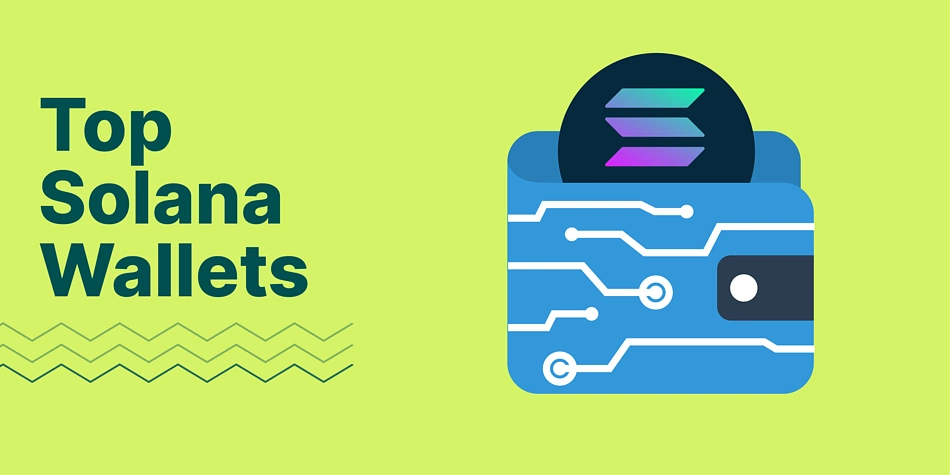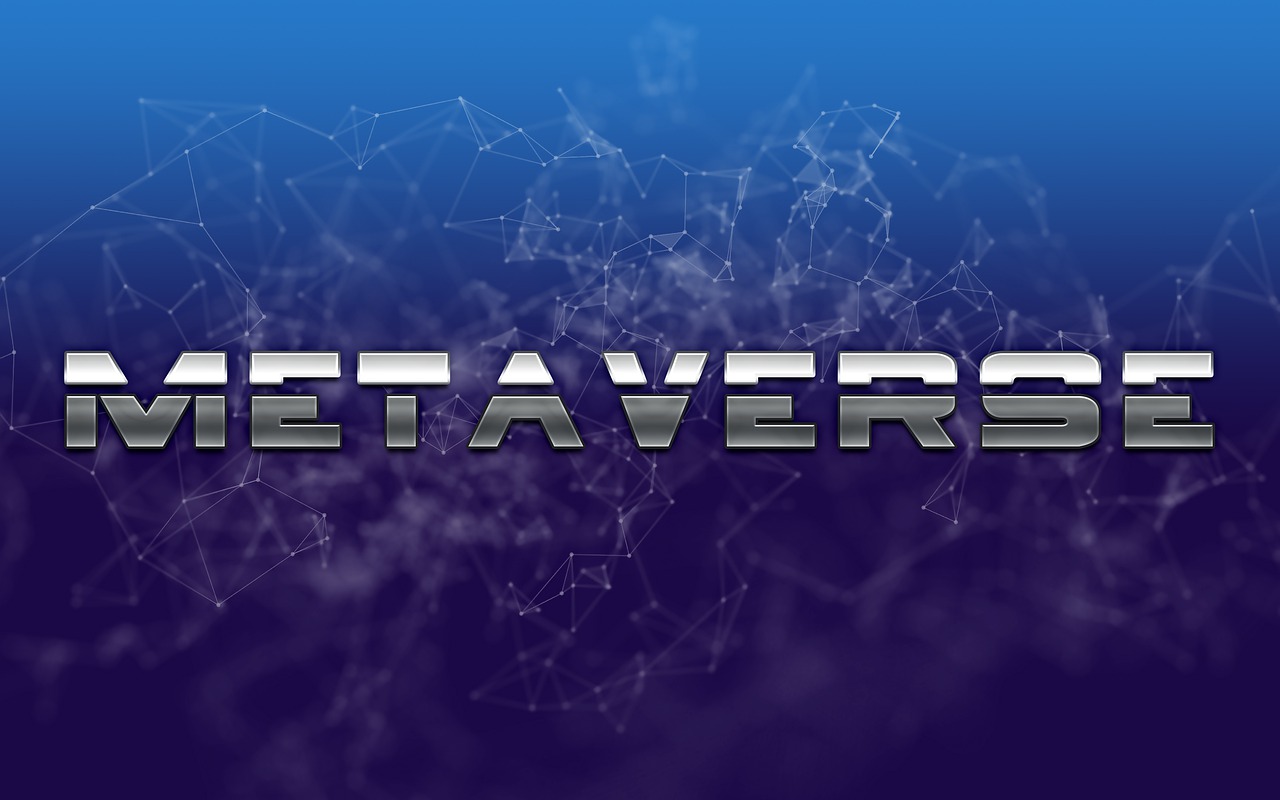The Top 10 Solana Wallets for 2024

Solana operates as an open-source blockchain that hosts scalable, decentralized apps. The Solana Foundation, based in Geneva, has managed the platform since its launch in 2017. When evaluating the top Solana wallets, focus on six key features: an intuitive interface, dApp integration, built-in swapping, staking capabilities, mobile accessibility, and regular updates. You can access your SOL tokens on iPhones and Androids through a Solana wallet’s mobile app.
The ideal Solana wallet should have an easy-to-use design. Look for simple navigation and an intuitive layout. Seamless dApp integration also ranks highly, allowing you to use decentralized apps on the Solana blockchain efficiently and efficiently. Native swaps let you exchange tokens without leaving the wallet. Staking features enable earning rewards by supporting validation.
Furthermore, mobile accessibility via iOS and Android apps permits checking your portfolio anywhere. Frequent updates keep the wallet optimized with the latest capabilities. Likewise, evaluating wallets on these six criteria will help you select a top-tier Solana wallet.
- Phantom – The most popular and widely used Solana wallet
- Solflare – One of the first Solana wallets
- Glow – Very user-friendly
- Torus – Enables easy key management
- Ledger – A Solana hardware wallet for staking and dApps
- Safepal – Has millions of users worldwide
- Exodus – Works on all major platforms
- Atomic Wallet – Uses local storage
- MathWallet – Supports multiple blockchains
- Clover – A multi-currency cross-platform wallet
Phantom
Phantom released its Solana wallet in 2021, allowing users to transfer, receive, store, stake, and trade digital assets within the Solana network. With over three million members today, Phantom has introduced numerous services in recent years.
Furthermore, Phantom earned a reputation in 2022 by offering its services to the Ethereum and Polygon networks. This way, more resources and apps for dApps could be accessed from the app and used by the users. Users can also tie Phantom to their Ledger Nano hardware wallet. On the other hand, Microsoft Edge, Brave, and Chrome are the only web browsers that now support the extension.
Moreover, Phantom hasn’t implemented this integration in its iOS and Android applications but intends to deploy this feature shortly. Phantom users can store and manage their NFT assets as a Solana NFT wallet to ensure security and safety. The company continues to innovate and add new features to make Phantom the best Solana wallet available.
Key Features
- Solana Support: Allows users to interact with the Solana ecosystem, like transferring SOL, staking, etc.
- Multi-Network: Supports Ethereum and Polygon networks in addition to Solana.
- Easy to Use: User-friendly interface for beginners.
- Secure: Uses encryption and other security measures to protect assets.
- Mobile Apps: iOS and Android apps are available for mobile access.
- NFT Support: Store, view, and transact NFTs on Solana.
- Staking: Earn rewards by staking SOL and other tokens.
- Browser Extension: Install as an extension on Chrome, Brave, and Edge browsers.
Pros And Cons
Pros:
- Easy to use, even for beginners.
- Multi-network support.
- Polygon and Solana.
- Open source.
- Private keys are encrypted and never leave the user’s device.
- Active development.
Cons
- Lacks phone or live chat support.
- No option for multi-sig wallets yet.
Solflare
Solflare, created by Solana Labs, emerged as one of the earliest wallets for the Solana ecosystem. This wallet enjoys popularity on par with Phantom and functions across more platforms. In addition to its browser extension, Solflare provides web and mobile apps. To aid its customers in forging connections between the NFT marketplace and crypto assets, Solflare supports Solana NFTs.
However, compared to Phantom, Solflare operates on more platforms, including a browser extension and web and mobile apps. Both wallets boast immense popularity among users of the Solana ecosystem. By supporting Solana NFTs, Solflare helps its customers link the NFT marketplace with their crypto assets. This functionality assists Solflare in serving the needs of its users.
Key Features
- Browser Extension: Solflare offers a browser extension wallet for Google Chrome and Brave.
- Mobile App: A Solflare mobile app is available for iOS and Android devices.
- Web App: Solflare has a web-based wallet accessible from any web browser.
- Seed Phrase: It uses a standard 12-word seed phrase to back up and restore the wallet.
- Transaction History: Users can view their full transaction history within the Solflare wallet.
- NFT Support: Solflare enables users to store, send, and receive NFTs on Solana.
- Staking: The wallet supports staking SOL and other tokens through validators.
- Security: Solflare uses encryption, seed phrases, and other security measures to protect user assets.
Pros And Cons
Pros
- User-friendly interface.
- Mobile support.
- NFT integration.
- Staking features.
- Open source.
Cons
- No hardware wallet support.
- Limited coins.
Glow
Glow offers several storage types and is the best Solana wallet for many users. You can save, send, receive, stake, or swap tokens directly on the Solana blockchain using Glow Wallet for your mobile phone, a Solana cryptocurrency wallet. The wallet has a user-friendly design—integrated Safari connection—iCloud backups— and several wallet integrations and alerts.
Moreover, the safety of offline cold wallets like Glow is higher than that of many online wallets as they avoid the online risks of cyber attacks. It is worth pointing out that there is no hacking trouble in a Solana wallet like Glow, which naturally results in being safer.
Key Features
- Multi-chain support: Allows storing cryptocurrencies like Bitcoin, Ethereum, Solana, etc.
- Offline storage: Provides cold storage disconnected from the internet for better security.
- Backup & Recovery: Has backup and restore options to prevent loss of assets.
- NFT support: Enables users to store NFTs from different blockchains.
- Staking rewards: Allows staking certain cryptocurrencies to earn rewards over time.
- Swap exchange: Integrated swap function for simple cryptocurrency exchanging.
- Hardware wallet support: Connects to Ledger hardware wallets to provide further protection.
- Intuitive interface: User-friendly design and easy onboarding process for beginners.
Pros And Cons
Pros
- Secure cold storage.
- User-friendly interface.
- Multi-chain support.
- Backup & recovery options.
- Staking rewards.
Cons
- A new project with less track record.
- Fees on some transactions.
Torus
Torus facilitates one-click login for Web 3.0 services such as cryptocurrency decentralized exchanges and NFT scaffolds. This crypto wallet collaborates with Solana, adapting the typical online OAuth user onboarding procedure. Programmers developing Solana now have the privilege of further frictionless key management using Torus’s DirectAuth integration.
Consequently, the wallet combines centralized and decentralized features of different applications in one app. With Torus’ Solana cold wallet, users can safely store assets in an offline lockbox. The wallet allows frictionless key management for Solana developers through a collaboration enabling DirectAuth integration. It facilitates one-click login for services like decentralized exchanges and NFT scaffolds, combining centralized and decentralized application features. The cold wallet functionality enables safe offline asset storage.
Key Features
- One-click login: Enables easy login to Web 3.0 services like exchanges and NFT platforms.
- Solana integration: Allows Solana developers to leverage frictionless key management.
- DirectAuth: Provides seamless authentication using Torus’s open protocol.
- Centralized + decentralized: Combines the best of centralized and decentralized applications.
- Multi-chain support: Works across blockchains like Ethereum, BSC, Polygon, etc.
- Social login: Let users log in with their existing social media accounts.
- Security-focused: Uses state-of-the-art encryption, key management, and other security features.
- Asset management: Allows users to view, transfer, and manage their crypto assets.
Pros And Cons
Pros
- Easy to use.
- Enhanced security.
- Supports multiple chains.
- Frictionless logins.
- Offline storage.
Cons
- Limited dApp support currently
- Potential centralization risks
- Requires some technical knowledge
Ledger
Ledger, a well-known brand, builds robust hardware crypto wallets. The Ledger Solana cold wallet supports 5000+ coins and has a mobile app, making it the best Solana hardware wallet. Meanwhile, the Ledger Solana cold wallet has one of the highest levels of security among offline storage vaults.
Staking SPL tokens for rewards and using them on dApps built on the Solana blockchain is an excellent way to keep your tokens in a hardware wallet. Ledger wallets allow users to view the list of Validators with whom they can stake, in addition to other details such as the amount staked overall, the number of stakers (or delegators), the blocks that have been skipped, and links to their websites.
Consequently, users of Ledger wallets can stake SPL tokens for rewards and use them on dApps built on the Solana blockchain to keep their tokens in a hardware wallet. The Ledger wallets show users the list of Validators for staking, along with details like the total amount staked, number of stakers, skipped blocks, and Validator websites.
Key Features
- Secure offline storage: Stores private keys offline for maximum security.
- Mobile app connectivity: Pairs with Ledger Live mobile app for on-the-go access.
- Multi-coin support: Supports over 5000 different crypto assets and tokens.
- Backup & recovery: Allows you to back up your account easily.
- Staking capabilities: Stake SOL and other tokens to earn rewards and interest.
- Third-party integrations: Integrates with various wallets, dApps, and exchanges.
- ERC-20 support: Allows you to store and manage ERC-20 tokens.
- Top-tier encryption: Uses advanced cryptography to protect your private keys.
Pros And Cons
Pros
- Very secure.
- Supports many assets.
- Easy to use.
- Universal compatibility.
- Staking features.
Cons
- Potential user errors.
- Limited functionality.
- Accessibility issues.
SafePal
SafePal stands out when considering the top Solana wallets. Over 3 million customers across 196 countries use SafePal’s hardware and software wallets. Notably, SafePal is the only hardware wallet Binance has ever invested in.
Moreover, the SafePal S1 serves as a cold wallet for Solana with a fully air-gapped signing system and offline cold storage. The wallet relies solely on QR codes to connect with your phone; everything stays offline. This prevents malware and hackers from accessing the wallet. Also, you must enter a PIN code on the SafePal Hardware Wallet for each action. So, even if stolen or lost, no one can access your wallet without the code.
Furthermore, SafePal’s large user base and backing from a major exchange like Binance make it a leading Solana wallet. The S1 model provides robust security through air-gapped transactions and PIN-protected access. For those reasons, SafePal is a top choice for securing Solana assets.
Key Features
- Air-gapped signing: Transactions are signed offline on the device to maximize security.
- Multi-chain support: Store assets from blockchains like Solana, Ethereum, and BNB Chain all in one place.
- Hardware wallet: Private keys are stored on a secure physical device not connected to the internet.
- Software wallet: Manage assets on your phone with the mobile app while keys stay protected on the hardware wallet.
- DeFi integrations: Access popular DeFi apps and services directly through the SafePal wallet.
- NFT support: Store and manage NFT collectibles from different marketplaces.
- Staking tools: Earn yields on supported crypto assets by staking them directly in the SafePal wallet.
- Military-grade encryption: Keys and data are protected by advanced cryptography like SHA-256 and AES-256.
Pros And Cons
Pros
- Very secure with air-gapped transactions.
- Supports many major cryptocurrencies.
- Easy-to-use mobile app.
- Affordable hardware wallet prices.
- Backed by major exchange Binance.
Cons
- Less brand recognition than Ledger or Trezor.
- Hardware defects were reported on some devices.
- Customer support can be slow at times.
Exodus
Exodus supports many currencies and platforms as a wallet. It is compatible with iOS, Android, Mac, Linux, and Windows platforms. You receive a roughly 6% yearly return on investment. The Exodus desktop wallet can connect to the Trezor Model T Solana hardware wallet by installing the Trezor bridge. Consequently, as a Solana NFT wallet, Exodus helps you manage, view, administrate, and trade your NFT assets in a few steps.
Moreover, Exodus is a wallet compatible with multiple currencies and platforms like iOS, Android, Mac, Linux, and Windows. You can get around a 6% yearly return on investment. By installing the Trezor bridge, you can connect the Exodus desktop wallet to the Trezor Model T Solana hardware wallet. Likewise, as a Solana NFT wallet, Exodus helps you manage, view, administrate, and trade your NFT assets in just a few steps.
Key Features
- Multi-currency wallet: Supports over 100 cryptocurrencies, including Bitcoin, Ethereum, Solana, and stablecoins.
- Easy to use interface: A clean, intuitive interface makes sending, receiving, and exchanging crypto simple.
- Built-in exchange: Allows for quick in-wallet crypto conversions between supported assets.
- Interest accounts: Earn up to 6% APY interest on certain crypto assets.
- NFT support: Store, view, and interact with Ethereum and Solana NFTs.
- Trezor integration: Connect Trezor hardware wallets for added security.
- Cross-platform: Available as a desktop, mobile app, and web wallet.
- Non-custodial: You control your private keys; Exodus has no access.
Pros And Cons
Pros
- User-friendly interface.
- Supports many assets.
- Built-in exchange is convenient.
- Interest accounts provide yields.
- Integrates with Trezor for security.
Cons
- Higher fees than some wallets.
- Limited customer support options.
- Occasional sync issues.
Atomic Wallet
Users of the Atomic Wallet can stake several cryptocurrencies, including SOL tokens. As you would with a local validator, you may choose one and stake your SOL with it. Consequently, Atomic Wallet is a leading candidate for the best Solana wallet and offers a wide range of functionalities, such as portfolio management, staking, and trading. Along with serving as a Solana NFT wallet, the wallet lets you trade or store whatever NFTs you choose.
Furthermore, users can retrieve their digital assets from any location with Atomic Wallet. The wallet can be used as an Android or iPhone wallet on a smartphone. Likewise, this allows customers to manage their assets from anywhere.
Key Features
- Multi-currency wallet: Stores over 500 cryptocurrencies in one secure location.
- Decentralized exchange: Allows for exchanging cryptocurrencies without an intermediary.
- Built-in staking: Stake-supported coins like SOL, ATOM, and ZIL to earn rewards.
- NFT support: Store, send, and receive NFTs on different blockchains in one place.
- Cross-chain swaps: Instantly swap between different cryptocurrencies across different blockchains.
- Mobile app: Manage your crypto portfolio on the go with user-friendly iOS and Android apps.
- Customizable interface: Personalize the look and feel of your wallet with different themes.
- Non-custodial: You control your private keys, not a third party, for maximum security.
Pros And Cons
Pros
- Supports many cryptocurrencies.
- Built-in exchange features.
- Easy staking options.
- Customizable interface.
- Secure and non-custodial.
Cons
- It can be complex for beginners.
- Higher fees than some exchanges.
- Limited customer support.
MathWallet
Math dApp’s many wonderful features make it an excellent choice for a Bitcoin wallet. Among these characteristics is its interoperability with the Math dApp marketplace. Users of this marketplace can interact with services built on major blockchains using digital wallets. With support for over 86 blockchains and compatibility across several platforms (desktop, mobile, browser extensions, and hardware connections with the Ledger Solana wallet), Math Wallet enhances user accessibility and flexibility.
Moreover, Math dApp makes dApps widely accessible, enables NFT collections and marketplaces, and allows users to manage their cryptocurrency holdings from a single software. Likewise, Math dApp is the greatest choice for anybody searching for a secure and feature-rich cryptocurrency wallet since it supports several chains and receives regular security upgrades.
Key Features
- Multi-chain support: Supports over 86 different blockchains.
- dApp marketplace: Allows users to access dApps from their wallet.
- NFT support: Enables users to store, view, and transact NFTs.
- Asset management: Provides tools to manage crypto assets from one place.
- Cross-platform accessibility: Available on desktop, mobile, browser extensions, and hardware wallets.
- Security: Implements ongoing security enhancements to protect user assets.
- Staking support: Allows users to stake supported crypto assets.
- Decentralized exchange: Allows for decentralized trading of crypto assets within the wallet.
Pros And Cons
Pros
- Multi-chain support provides flexibility.
- dApp marketplace expands functionality.
- NFT support facilitates emerging markets.
- Cross-platform accessibility enables convenience.
- Ongoing security enhancements protect assets.
Cons
- The steep learning curve for new crypto users.
- Transfer fees can be high between chains.
- Limited customer support channels.
Clover
With compatibility for several currencies, Clover is the finest Solana wallet available. Clover is available as a browser extension on mobile and desktop platforms. Clover combines cross-chain DeFi applications without forcing users to switch networks because it is a Solana NFT wallet. Clover’s ability to link to other networks, including Polkadot, Ethereum, Solana, and BNB Chain, makes this feasible.
Moreover, using Clover as a Solana wallet allows you to benefit from its multi-network connectivity. When utilizing DeFi apps cross-chain manually, Clover removes the requirement for network transfers. Likewise, Clover’s connection with popular networks like Polkadot, Ethereum, BNB Chain, and Solana makes it incredibly convenient.
Key Features
Support for several chains: Easily connects to the main blockchain networks, such as Solana, BNB Chain, Ethereum, and Polkadot.
Cross-chain DeFi: Removes the need for manual transfers and enables the use of DeFi applications across several chains.
Web browser extension: Web browsers can install this as an extension for convenient access.
Mobile app: Offers an iOS and Android mobile wallet app.
NFT support: centrally stores and presents NFTs from several blockchains.
Staking rewards: Earn interest and staking incentives on compatible cryptocurrency assets.
Features for security: uses biometrics, pin codes, and seed phrases—advanced security measures.
Open source: Developed using a transparent and open source approach to community-driven innovation.
Pros And Cons
Pros
- Multi-chain support.
- Cross-chain DeFi.
- Easy-to-use apps.
- Open source transparency.
- Staking rewards.
Cons
- Still new and unproven.
- Limited native support.
- Potential security risks.
FAQ
How can I combine Metamask with Solana?
MetaMask does not support Solana. MetaMask works with Ethereum and other EVM-compatible chains. It uses Solidity and Vyper smart contracts. Moreover, Solana has a different architecture based on Rust. The Rust platform is incompatible with Ethereum and the EVM. So, Solana cannot be added to MetaMask. Users of Solana need wallets made for its Rust design.
Which Solana hardware wallet is the best?
Known for its mobility and safety, Ledger is the finest hardware wallet available for Solana.
Which Solana wallet for iPhone is the best?
Phantom’s Solana-only mode makes it the greatest Solana wallet for iPhone.
Which Solana wallet for Android is the best?
Since Solflare can connect to Web 3 dApps, it is the finest Solana wallet available for Android.
Conclusion
The post reviews top Solana crypto wallets based on usability, decentralized app support, trading features, interest earning, mobile use, and updates. It overviews 10 popular Solana wallets. Recommended wallets are Ledger for multi-network support, Phantom for strong security, and Solflare for website/app/browser flexibility.
Furthermore, other good options are Torus for easy logins, SafePal for offline transactions, Exodus for cryptocurrency rewards, MathWallet for DApp integration, and Clover for cross-chain trading. Compare wallets based on your needs to choose the best one.
Related Reading | Top NFT Marketplaces of 2024








